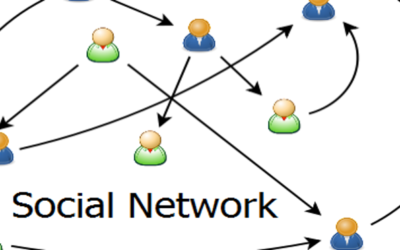The Fit Minds Cognitive Care Blueprint™ is our framework document to help you create a positive framework. Part of that process is taking stock of your family resources. This is a key area you need to consider when dealing with dementia. As parents grow older, experience health crises, and require more help from their adult children, having brothers or sisters to share the caregiving load makes things easier… Right?
Or maybe not so much!
Family Stress Points
An often overlooked stress point in family caregiving is the friction between adult siblings. Conflict can get in the way of providing the best possible care for our parents. It can even have a long-term impact on relationships within the extended family. This is an important time in the life of a family. The ways siblings navigate this period together helps set the stage for how they will continue to interact – or even if they will!

Family resources can help you build a strong support system for moving forward.
With a little bit of planning, it will be easier to navigate this critical phase.
You may be noticing a gradual decline in your mom or dad’s overall health that is raising a flag.
Or you may face a sudden health crisis like a fall or a stroke.
You may suspect or receive a diagnosis of dementia.
Or maybe your mom or dad wants to talk about end-of-life planning, funeral arrangements or setting up a power of attorney and all of a sudden this issue is before you.
Most people face these issues unexpectedly. Life is busy. You probably have a ton of things on your plate and quite likely you weren’t really expecting your parent to need your care right now. You are not alone – this is pretty normal!
Our new reality is that aging parents are a part of the next developmental stage of a family.
If you are feeling guilty about this or grieving the sudden change in roles, you’re likely dealing with an emotional minefield that can explode during a family discussion. There can also be unexpressed anger between siblings or between siblings and parents that rears its head at this time.
Remember: when people are in crisis they usually fall back into patterns of behaviour that feel familiar to them.
Common Disagreements
There are a few factors which commonly lead to disagreements in these situations.
First, when there is an imbalance of care. For example: when one sibling will not help or prevents others from having a say. Or they criticize the caregiving of another. This often occurs when a sibling is out of town and “swoops in” for a short stay. Their suggestions may come across as criticizing the caregiving of another adult child who has been providing the bulk of the care.
Another point of disagreement is how much care Mom or Dad actually need and how much independence is safe. One sibling may be really focused on independence – wanting mom or dad to stay in their own home – while another may be more focused on safety and want care providers to be available.
Sometimes it is hard to know what level of care is appropriate and required. We have some good assessment tools for this which I share in both the video and in our Enable Family Program.
Family Meeting
Normally the best way forward is to arrange a family meeting. Family meetings can be a really successful tool to get everyone on the same page – or they can be disasters. The key to success is preparation.
Prepare for your meeting by making a list. The list should include everything that you can think of that may be a topic for discussion. The list might include things like physical care, social stimulation, transportation, and shopping to chores, financial assistance, legal issues, and other necessities that you and the family identify based on your specific situation.
Now create an agenda that incorporates everything from you list.
Once you’ve created the agenda circulate it to everyone in the family so that they can make suggestions as well. This is a really good way to defuse some of the tension that may surround a meeting by making sure everyone’s concerns are going to be dealt with.
You should also think about how you want to include your parents in the decision-making process and how they can be encouraged to accept help.
Sometimes it’s a good idea to have the initial meeting without your Mom or Dad so that you can talk through how you want to proceed. This can avoid a lot of misunderstandings and hurt feelings. But after this first meeting, plan on including your mom and/or dad. Remember: the more inclusive you can be in the planning, the better!
Once you’ve developed the agenda you are now ready for the meeting.
During the meeting, decide who is going to keep notes. You want to capture everything that you talk about so you can refer to it later. It helps frame the discussions going forward. It is also a good way to include individuals who may not speak as much. If they are not big talkers, this gives them an important way to participate. Walking away from this meeting with a written document will be very helpful in moving forward.
Appoint a Coordinator
Appoint a Coordinator. This should not be the primary caregiver. The role of the coordinator is to keep things organized and be a point of contact. This allows the primary caregiver to focus on the person who is ill and also have time to relax and recharge. You absolutely do not want a burnt-out primary caregiver.
For each point on the agenda give everyone an opportunity to exchange ideas. Acknowledge and express understanding for each person’s point of view in an accepting way. For example, you might say things like: “That’s a good point” or “Help me understand what you are saying”.
Always assume that the person speaking has the best of intentions and receive what they say from that perspective. It helps reduce that immediate negative response that can occur within us when someone says something that pushes our buttons. Reacting to what was said instead of what we think was intended can help de-escalate an already tense situation.
Keep in mind that not everyone regards the same task in the same way. Some people enjoy shopping; other people enjoy cleaning or making appointments. Try and match tasks with the particular preferences of each family member.
Some of the needs that you identify for your parents may be beyond what you can do personally. When my friend was dying from ALS he did not want any family member to be doing his personal care – so the family had to hire a home care company for that.
You have to think about what care is possible and will be accepted from each of you and – where necessary – access service providers in the community. One sibling may take on doing the research and making contacts. You will also have to decide how you are going to pay for the services you need.
In my experience, one of the most difficult obstacles to getting care is having your parents spend money on themselves. They often have a really hard time – after years of saving – seeing the requirement to spend money for services they need. When it comes to services, you need to look at the options and choose the best one for your family. Cost will be a factor. But so will the peace of mind that you will have knowing your mom or dad is well cared for. This is an important element that is difficult to price. Sharing your concerns with your loved one may help them overcome their reluctance in this area.
Finally, write down your plan. Make sure you include the details of who is going to do what. Make sure everyone gets a copy – including those who could not make the meeting but are affected by the caregiving decisions.
Resolving Conflict
If conflict arises the best way to move through this is to focus on remaining loving and open to each other. React to the individual causing the conflict with understanding and acceptance. This can go a long way to healing old family wounds.
Don’t be afraid to bring in a family mediator or elder care attorney if relationships become particularly contentious or you come to an impasse. Sometimes an outside perspective can help break a logjam or help people move past some difficult history.
Look at this time in your family’s life as an opportunity to lay the groundwork for future relationships between you and your siblings and your children and grandchildren.
Now you are ready to move forward with scheduling your family meeting. The outcome you want is a plan that creates a structure for your Mom or Dad that improves and maximizes their quality of life.
Our Enable Family Program gives you tools and resources to create that structure and help you build and maintain your relationship. Because while dementia changes relationships, it doesn’t end them.
If you want to sign up to watch the video series, you can do it here.




0 Comments